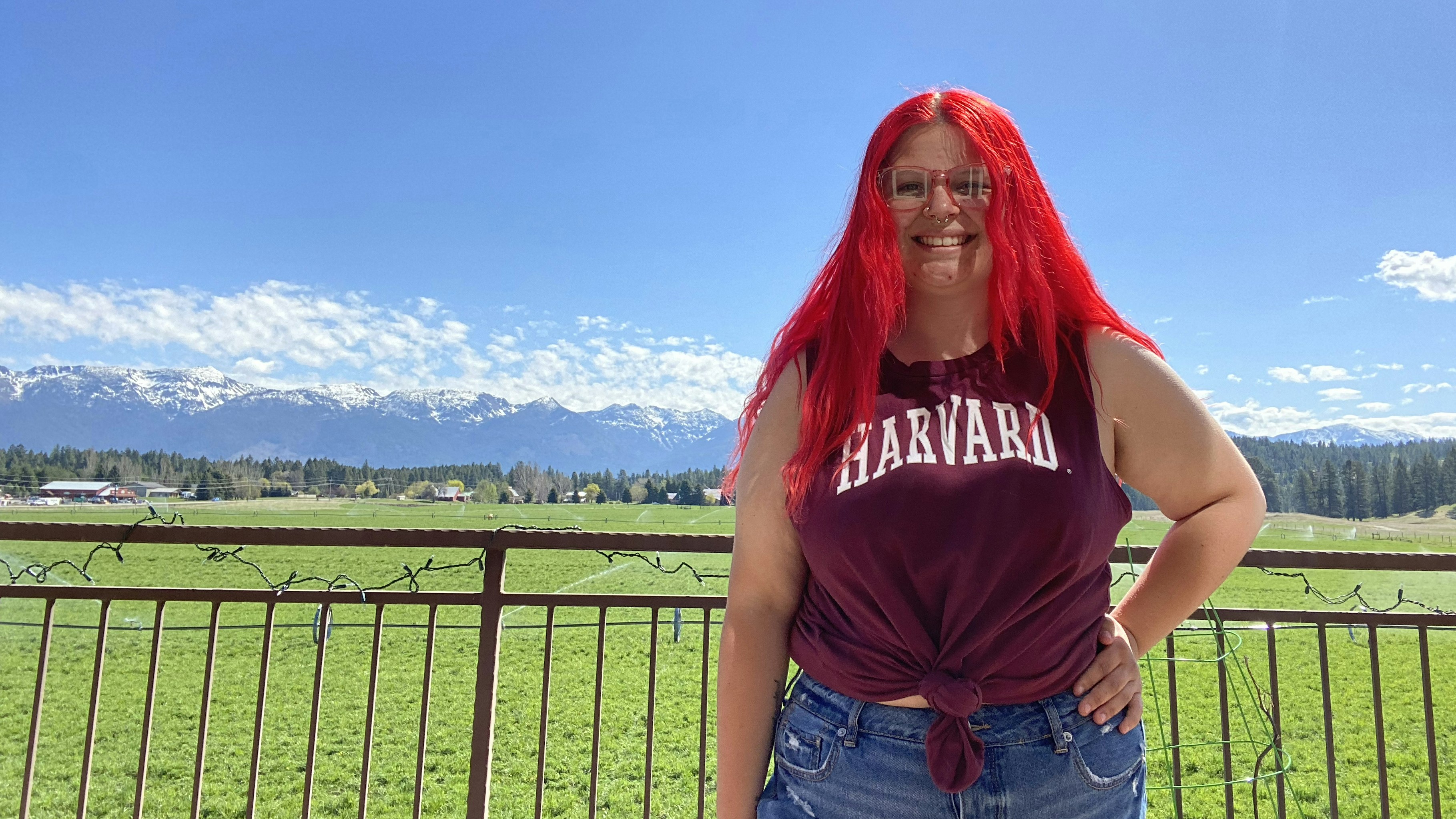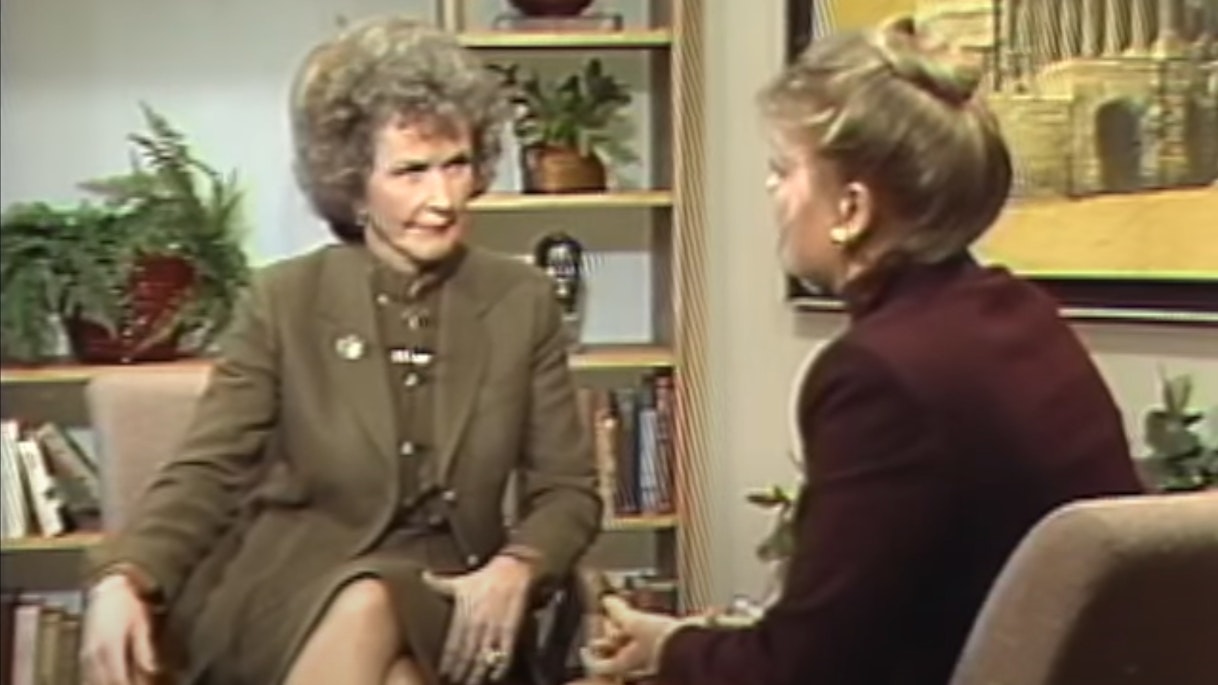A Woman's Place Is at the Convention

A Harvard College senior examines feminism within the Republican Party, 1972–1980.
I was born and raised in one of the most conservative counties in Montana. Located deep within the Rocky Mountains and off the shores of Flathead Lake, the 5,256-square-mile Flathead County is home to nearly 100,000 people, but my village, Bigfork, only has approximately 2,000 yearlong residents.
Former President Donald Trump was treated as a second God there, winning over 65 percent of the vote share in 2016 and over 60 percent in 2020. The running joke in my high school was that I was a “feminist,” and in my senior year, I received multiple death threats because I was a Democrat, including fellow students threatening to use me as target practice or ripping progressive bumper stickers off my car in the high school parking lot. These experiences piqued my fascination with the Republican Party at a young age, because all my bullies were extremely proud conservatives. So when it came time to choosing a topic for my senior thesis, I knew there was a perfect—and highly understudied—subject that would ruffle my detractors' conservative feathers: Republican feminism.
My senior thesis analyzes the role of feminists within the Republican Party, tracing the rise and fall of the Equal Rights Amendment (ERA) with the conservative shift of the party in the late 1970s. By anchoring my project in the 1972, 1976, and 1980 Republican National Conventions, I was able to trace an ideological shift within the mainstream members of the party from moderate in the early 1970s to right wing by 1980.
The majority of historians who have studied the rise of conservatism mark Reagan's 1980 landslide election as a turning point within the Republican Party’s rightward shift, but in my thesis, I argue that the shift actually occurred months earlier, at the 1980 Republican National Convention, in Detroit, with the removal of support for the ERA in the party platform, the creation of an antiabortion constitutional amendment, and the ousting of the prominent feminist Mary Dent Crisp.

In this clip from a December 11, 1981, interview with Tranette Ledford-Furnad, Crisp discusses her estrangement from the Republican Party leadership in 1980, her work on the campaign of the independent presidential candidate John B. Anderson, and the state of the women's movement. Videotape collection of Mary Dent Crisp, 1979–1998/Schlesinger Library
My project specifically focuses on the career of Crisp, who, after serving from 1977 to 1980 as the cochair of the Republican National Committee, was ousted by the Republican Party because of her unabashed support for feminism and the Equal Rights Amendment. After the 1980 Republican Party Platform Committee voted to remove the ERA from the platform (after including the plank nearly every year since 1940) and to include an antiabortion plank, Crisp gave an impassioned speech in front of her fellow Republicans, saying, “My friends, I am sorry, but I cannot turn my back on these issues, and I feel compelled to do whatever is within my power to prevent these two tragedies from occurring.” Crisp was strong and secure in her beliefs, and she refused to compromise to please others. She has truly become one of my role models.
The Schlesinger Library was an essential component of my senior thesis. My junior year, I was fortunate to receive a 2021–2022 Carol K. Pforzheimer Fellowship, which—along with grants I received from the Center for American Political Studies and the Charles Warren Center for Studies in American History—funded my research over the summer and fall of 2021. I spent countless hours in the Schlesinger’s Carol K. Pforzheimer Reading Room, going through folder after folder in the Mary Dent Crisp Papers. I would not have been able to undertake this project without the help of the research librarian Tamar Gonen Brown and all of the Schlesinger librarians, as well as that of my phenomenal thesis advisor, Jane Kamensky, and my advisee-partner, Morgan Melito ’22.
Mary Dent Crisp became an outsider in her own party, just as I was an outsider in Bigfork, Montana. Working on this thesis taught me not only the importance of being strong in the face of adversity but also the value of standing by your beliefs. Crisp became a public figure and a feminist hero because she did just that, and I believe that I am where I am today because I, too, did not falter on my values.
Liz Hoveland, Harvard College Class of 2022, is a joint concentrator in history and studies of women, gender, and sexuality with a secondary in government.







